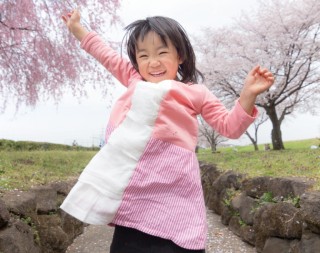Loading
Search
▼ Japan’s Uncle Fist Loses Money Every Week Selling Takoyaki to Kids for Just 10 yen, Doesn’t Care
- Category:Other
Actually, he does care, but about kids from impoverished homes, not about making money from his octopus dumpling business.
During most of the week, 52-year-old Akio Mizuno works as the owner of a roadside souvenir and local foodstuffs shop in Ritto, a town in Japan’s central Shiga Prefecture. Since last year, though, he’s been taking Thursdays off.
However, Mizuno hasn’t been using his newly carved-out block of free time for any of the common pastimes of 50-something men, such as playing golf, betting on horses, or getting comfortably drunk in the comfort of his living room. Instead, he’s converted a compact van into a mobile takoyaki (octopus dumplings) stand which he drives into the neighboring city of Kusatsu, selling the bite-sized snacks during the after-school hours of 3:30 to 5 p.m.
But while he’s a successful businessman the other days of the week, Mizuno doesn’t make a profit on his takoyaki venture. That’s not because his dumplings aren’t tasty, as their flavor and fluffiness has won him a loyal fanbase of repeat customers.
No, the problem, from a monetary standpoint, is his pricing. The most Mizuno ever charges for a plate of takoyaki is just 100 yen (US$0.90), roughly a quarter of what the snacks usually sell for. What’s more, that price point is only for high school students. If you’re in junior high, you only need to give “Uncle Fist,” as the local kids call him (we’ll explain why in a bit) 50 yen, and if you’re still in elementary school, our bill is just 10 yen (US$0.9). Oh, and charging full-grown adults the standard market price for takoyaki is out too, since Uncle Fist’s takoyaki stand only serves kids.
Of course, with prices like those, Mizuno accurately expects to end up in the red. Even though he gets the green onions used to season the takoyaki for free from a local merchant, he’s taking a complete loss on the octopus he has to buy, with the revenue from his customers maybe helping to cover part of the cost of the batter and other incidental ingredients. As you might have guessed, Mizuno’s Thursday afternoon activities are something he does simply to make his tiny customers’ day a little happier, and the reason for his low prices comes from his own childhood, being raised by a single mother in a household where money was always tight before he found financial success as an adult.
Initially, Mizuno wanted to use the same model as organizations in Japan that run “kodomo shokudo,” or “kids cafeterias.” These are after-school meal programs that offer affordable food to children from low-income homes, with some offering discounts for such heartwarming services rendered as the child coloring a picture for the staff.
However, since they’re essentially restaurants, running a kodomo shokudo requires a certain amount of space and staff, which Mizuno lacked. But outfitting a van with a compact kitchen and specializing in just one, easy-to-make item? That he could handle, and so Uncle Fist (Genkotsu Ojisan in Japanese) started his takoyaki stand.
At first people were suspicious of the bald, burly man in the truck selling snacks at illogically low prices. But eventually word got around that Uncle Fist’s intentions were pure and his takoyaki tasty, and now there’s a line of customers waiting to buy his dumplings every Thursday.
Okay, so why is he called “Uncle Fist?” Well, when it’s time to pay, kids don’t hand their money directly to Mizuno. Instead, they’re told to grip their coins in a closed fist and drop them into the slot in a box, called the “Fist Box,” that Mizuno sets up next to where he’s cooking. It’s sort of like a secret handshake, and little kids tend to get a chuckle out of cryptic stuff like that. But really, the reason for this unorthodox payment system is something amazingly clever and heartbreakingly compassionate.
Even before Mizuno serves his first customer of the day, the Fist Box isn’t empty. Sure, there aren’t any coins in it, but before he sets up shop, Mizuno places a soft towel inside the box, so that the coins won’t make any sound as they drop.
Why bother doing this? Because coming from an impoverished background himself, Mizuno knows that there are kids who don’t even have 10 yen to spare for a plate of takoyaki. He still wants them to be able to enjoy an afternoon snack with their friends, though, and without the unnecessary yet understandable embarrassment of receiving a freebie.
The unspoken understanding between Uncle Fist and his customers is that if you don’t have any money, you can always walk up to the box with a closed fist and pretend to drop some coins into it. No one will see that your hand was empty, and the lack of sound won’t expose you either, since every payment is silent.
Because really, when you’re only charging 10 yen anyway, what’s the difference if a couple of your customers’ takoyaki is on the house? If your real goal is to make kids happy, being able to do that for just 10 yen more is a marginal cost Mizuno is only too happy to have.
Initially, Mizuno wanted to use the same model as organizations in Japan that run “kodomo shokudo,” or “kids cafeterias.” These are after-school meal programs that offer affordable food to children from low-income homes, with some offering discounts for such heartwarming services rendered as the child coloring a picture for the staff.
However, since they’re essentially restaurants, running a kodomo shokudo requires a certain amount of space and staff, which Mizuno lacked. But outfitting a van with a compact kitchen and specializing in just one, easy-to-make item? That he could handle, and so Uncle Fist (Genkotsu Ojisan in Japanese) started his takoyaki stand.
At first people were suspicious of the bald, burly man in the truck selling snacks at illogically low prices. But eventually word got around that Uncle Fist’s intentions were pure and his takoyaki tasty, and now there’s a line of customers waiting to buy his dumplings every Thursday.
Okay, so why is he called “Uncle Fist?” Well, when it’s time to pay, kids don’t hand their money directly to Mizuno. Instead, they’re told to grip their coins in a closed fist and drop them into the slot in a box, called the “Fist Box,” that Mizuno sets up next to where he’s cooking. It’s sort of like a secret handshake, and little kids tend to get a chuckle out of cryptic stuff like that. But really, the reason for this unorthodox payment system is something amazingly clever and heartbreakingly compassionate.
Even before Mizuno serves his first customer of the day, the Fist Box isn’t empty. Sure, there aren’t any coins in it, but before he sets up shop, Mizuno places a soft towel inside the box, so that the coins won’t make any sound as they drop.
Why bother doing this? Because coming from an impoverished background himself, Mizuno knows that there are kids who don’t even have 10 yen to spare for a plate of takoyaki. He still wants them to be able to enjoy an afternoon snack with their friends, though, and without the unnecessary yet understandable embarrassment of receiving a freebie.
The unspoken understanding between Uncle Fist and his customers is that if you don’t have any money, you can always walk up to the box with a closed fist and pretend to drop some coins into it. No one will see that your hand was empty, and the lack of sound won’t expose you either, since every payment is silent.
Because really, when you’re only charging 10 yen anyway, what’s the difference if a couple of your customers’ takoyaki is on the house? If your real goal is to make kids happy, being able to do that for just 10 yen more is a marginal cost Mizuno is only too happy to have.
- October 26, 2018
- Comment (0)
- Trackback(0)



